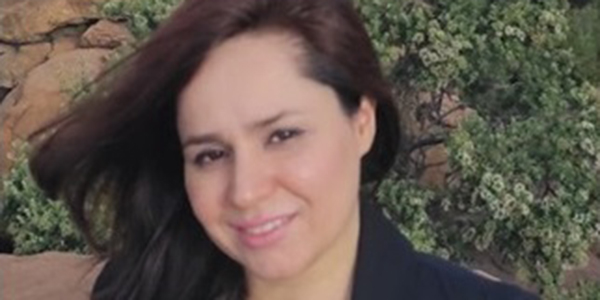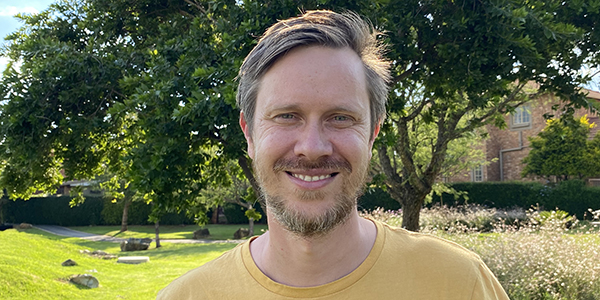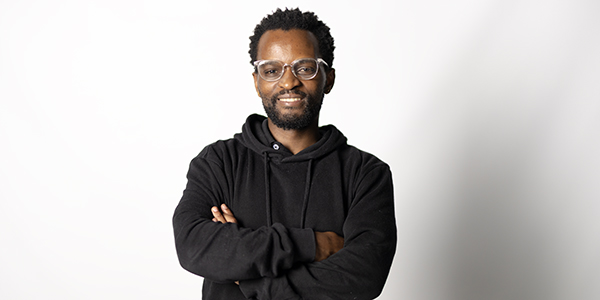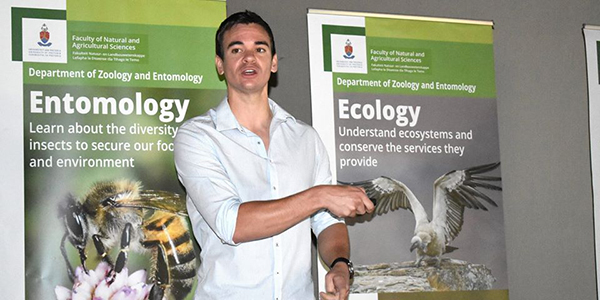Meet the 2024 Friedel Sellschop Fellows
- Wits University
Doctors Saeideh Babaee, Ashley Coates, Isaac Nape, and Matt Noakes are the 2024 Friedel Sellschop Fellows.
The fellowships, worth up to R145 000 each per annum for three years, are awarded annually to recognise and encourage exceptional early-stage researchers.
Engineering innovative hydrogen storage solutions

Dr Saeideh Babaee is a Lecturer in the School of Chemical and Metallurgical Engineering. Her research is titled Innovative approaches to hydrogen storage including gas hydrates and solid adsorption technologies.
Hydrogen is typically stored as a compressed gas, which requires high-pressure containers. This poses challenges in terms of designing and manufacturing safe and efficient storage systems.
Gas hydrates have been proposed as a potential storage medium for hydrogen, due to their high gas storage capacity and ability to maintain the gas under moderate pressure and low temperatures.
In this research, the current challenges in the application of gas hydrate in hydrogen storage are addressed by using various methods to promote hydrogen adsorption and stabilize the hydrate structure.
What scientific theory reveals about causal patterns in nature

Dr Ashley Coates is a Lecturer in the Department of Philosophy in the School of Social Sciences. His research focus is Qualitative essentialism.
Philosophers defend competing accounts of the connection between scientific properties, like mass and charge, and the kinds of behaviour those properties bestow on their bearers.
For instance, some philosophers think all there is to having a property like negative charge is exhibiting certain sorts of behaviour, such as repelling other negative charges. Other philosophers think that there is more to scientific properties than the patterns of behaviour with which they are associated.
“The focus of my research is on developing and defending a novel view of the latter sort,” explains Coates. “On this view, the behaviour of scientific properties is determined by their natures, but there is more to their natures than their behaviour.”
An important implication of this view is that scientific theory can tell us much about causal patterns in nature but can tell us little about the deep causal structure of the world.
Making light of quantum photonics

Dr Isaac Nape, a Lecturer in the School of Physics and the Wits-IBM Liaison, is a researcher specialising in the fields of photonic and quantum computing.
His research, Advancing higher-dimensional photonics systems through quantum computing, focuses on quantum searching and optimization algorithms as tools for solving inference and inverse problems in physics and other related fields.
Nape has made influential contributions to quantum and classical optics, which have garnered global acclaim. His research has featured prominently in journals like Nature Photonics, Science Advances, and Nature Communications.
Accolades include the 2024 Meiring Naude Medal awarded to early-career researchers by the Royal Society of South Africa, the 2023 Jubilee Silver Medal from the South African Institute of Physics, and recognition as one of South Africa’s top 200 young innovators by M&G (2023).
How animals respond to temperature

Dr Matt Noakes is a zoologist who studies how animals are adapted to different environments. His research focuses on animal physiology, particularly thermoregulation of birds and small mammals such as bats. This includes responses ranging from cold endurance to heat tolerance, as well as torpor and hibernation.
“I am particularly interested in the ability of animals to adjust their physiology in response to rapid environmental changes, such as those occurring to human-induced climate change,” says Noakes, who is a Lecturer in the School of Animal, Plant and Environmental Sciences (APES).
His specific research topic is: Seasonal acclimatisation in subtoropical endotherms across a temperature and humidity gradient: Do physiological strategies to cope with the heat vary amogn dry and humid habitats?
沙巴体育官网_2024欧洲杯博彩app@ the Friedel Sellschop Awards
The Friedel Sellschop awards are worth up to R145 000 each per annum for three years.
All members of academic staff in all faculties are eligible, subject to their:
- being permanent members of staff
- having completed a PhD or have comparable demonstrable achievement
- being within five years of their first academic appointment
- having produced a substantial body of research which is internationally recognised or will likely establish an international reputation as a leader in the field.
A National Research Foundation rating is advantageous but not required.
Who was Friedel Sellschop?
Professor Friedel Sellschop (1930-2002) was the Dean of the Faculty of Science at Wits from 1979 to 1983, and Deputy Vice-Chancellor: Research, from 1984 to 1996. He was part of a research group that identified the first neutrino found in nature in one of South Africa’s gold mines. Neutrinos are tiny particles which are produced in stars and make up a considerable amount of matter in the universe. The University awards the Friedel Sellschop Fellowships annually in his honour.
